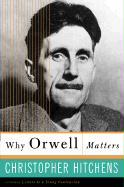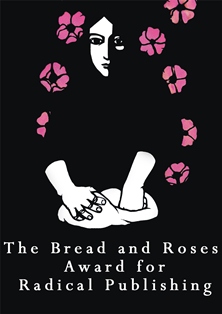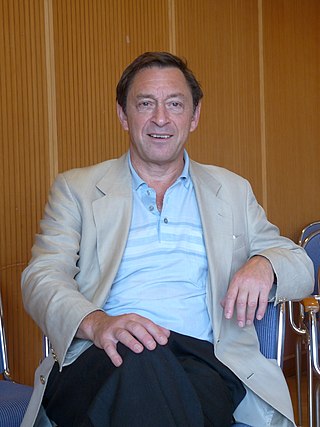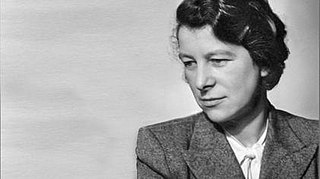Related Research Articles

Eric Arthur Blair, better known by his pen name George Orwell, was an English novelist, essayist, journalist, and critic. His work is characterised by lucid prose, social criticism, opposition to totalitarianism, and support of democratic socialism.

Industrialisation is the period of social and economic change that transforms a human group from an agrarian society into an industrial society. This involves an extensive re-organisation of an economy for the purpose of manufacturing. Historically industrialization is associated with increase of polluting industries heavily dependent on fossil fuels. With the increasing focus on sustainable development and green industrial policy practices, industrialization increasingly includes technological leapfrogging, with direct investment in more advanced, cleaner technologies.

Jeremy Bernard Corbyn is a British politician who served as Leader of the Opposition and Leader of the Labour Party from 2015 to 2020. On the political left of the Labour Party, Corbyn describes himself as a socialist. He has been Member of Parliament (MP) for Islington North since 1983. Corbyn sits in the House of Commons as an independent, having had the whip suspended in October 2020.

George Joshua Richard Monbiot is a British writer known for his environmental and political activism. He writes a regular column for The Guardian and is the author of a number of books.

The economy of India has transitioned from a mixed planned economy to a mixed middle-income developing social market economy with notable state participation in strategic sectors. It is the world's fifth-largest economy by nominal GDP and the third-largest by purchasing power parity (PPP). According to the International Monetary Fund (IMF), on a per capita income basis, India ranked 139th by GDP (nominal) and 127th by GDP (PPP). From independence in 1947 until 1991, successive governments followed Soviet style planned economy and promoted protectionist economic policies, with extensive state intervention and economic regulation. This is characterised as dirigism, in the form of the License Raj. The end of the Cold War and an acute balance of payments crisis in 1991 led to the adoption of a broad economic liberalisation in India. Since the start of the 21st century, annual average GDP growth has been 6% to 7%. The economy of the Indian subcontinent was the largest in the world for most of recorded history up until the onset of colonialism in early 19th century. India account for 7.2% of global economy in 2022 in PPP terms, and around 3.4% in nominal terms in 2022.

Kenan Malik is an Indian-born British writer, lecturer and broadcaster, trained in neurobiology and the history of science. As an academic author, his focus is on the philosophy of biology, and contemporary theories of multiculturalism, pluralism, and race. These topics are core concerns in The Meaning of Race (1996), Man, Beast and Zombie (2000) and Strange Fruit: Why Both Sides Are Wrong in the Race Debate (2008).

Kingslee James McLean Daley ,, is a British rapper, journalist, author, activist and poet from Kentish Town, London best known for his portrayal of the character Akala. In 2006, he was voted the Best Hip Hop Act at the MOBO Awards and has been included on the annual Powerlist of the 100 most influential Black British people in the UK, most recently making the 2021 edition.

Why Orwell Matters, released in the UK as Orwell's Victory, is a book-length biographical essay by Christopher Hitchens. In it, the author relates George Orwell's thoughts on and actions in relation to: The British Empire, the Left, the Right, the United States of America, English conventions, feminism, and his controversial list for the British Foreign Office.
The British left can refer to multiple concepts. It is sometimes used a shorthand for groups aligned with the Labour Party. It can also refer to other groups and political parties that have sought egalitarian changes in the economic, political, and cultural institutions of the United Kingdom. Various subgroups with a national scope are active. Liberals and progressives believe that equality can be accommodated into existing capitalist structures, but they differ in their criticism of capitalism and on the extent of reform and the welfare state. Anarchists, communists, socialists, and social democrats with international imperatives are also present within this macro-movement.

Johann Eduard Hari is a British-Swiss writer and journalist who wrote for The Independent and The Huffington Post. In 2011, Hari was suspended from The Independent and later resigned, after admitting to plagiarism and fabrications dating back to 2001 and making malicious edits to the Wikipedia pages of journalists who had criticised his conduct. He has since written books on the topics of depression, the war on drugs, and the effect of technology on attention spans, which have attracted criticism for poorly evidenced claims, misrepresented sources, and bad citational practices.

Wesley Paul William Streeting is a British Labour Party politician who has been the Shadow Secretary of State for Health and Social Care since 2021, and Member of Parliament (MP) for Ilford North since 2015.
John Newsinger is a British historian and academic, who is an emeritus professor of history at Bath Spa University.

Nineteen Eighty-Four is a dystopian social science fiction novel and cautionary tale by English writer George Orwell. It was published on 8 June 1949 by Secker & Warburg as Orwell's ninth and final book completed in his lifetime. Thematically, it centres on the consequences of totalitarianism, mass surveillance and repressive regimentation of people and behaviours within society. Orwell, a democratic socialist, modelled the authoritarian state in the novel on Stalinist Russia and Nazi Germany. More broadly, the novel examines the role of truth and facts within societies and the ways in which they can be manipulated.

Elizabeth Louise Kendall is a British Labour Party politician who has been Member of Parliament (MP) for Leicester West since 2010.

The Bread and Roses Award for Radical Publishing is a British literary award presented for the best radical book published each year, with radical book defined as one that is "informed by socialist, anarchist, environmental, feminist and anti-racist concerns" – in other words, ideologically left books. The award believes itself to be the UK's only left-wing only book prize. Books must be written, or largely written by authors or editors normally living in the UK, or international books available for purchase in the UK. Winning authors receive £1,000. The Bread and Roses Award is sponsored by the Alliance of Radical Booksellers and has no corporate sponsorship.

Guy Standing is a British labour economist. He is a professor of development studies at the School of Oriental and African Studies, University of London, and a co-founder of the Basic Income Earth Network (BIEN). Standing has written widely in the areas of labour economics, labour market policy, unemployment, labour market flexibility, structural adjustment policies and social protection. He created the term precariat to describe an emerging class of workers who are harmed by low wages and poor job security as a consequence of globalisation. Since the 2011 publication of his book The Precariat: The New Dangerous Class, his work has focused on the precariat, unconditional basic income, deliberative democracy, and the commons.

The working class comprises those engaged in manual-labour occupations or industrial work, who are remunerated via waged or salaried contracts. Working-class occupations include blue-collar jobs, and most pink-collar jobs. Members of the working class rely exclusively upon earnings from wage labour; thus, according to more inclusive definitions, the category can include almost all of the working population of industrialized economies, as well as those employed in the urban areas of non-industrialized economies or in the rural workforce.

Richard Burgon is a British Labour Party politician who has been the Member of Parliament (MP) for Leeds East since 2015. Burgon served as Shadow Secretary of State for Justice and Shadow Lord Chancellor in the Shadow Cabinet of Jeremy Corbyn from 2016 to 2020.
John Bew is Professor in History and Foreign Policy at King's College London and from 2013 to 2014 held the Henry A. Kissinger Chair in Foreign Policy and International Relations at the John W. Kluge Center.

Esther Simpson OBE was an English humanitarian who was the Assistant Secretary, later Secretary, of the Academic Assistance Council (AAC) and its successor organisations from 1933 until 1978. She worked tirelessly throughout her life to establish work and connections for refugee academics. Her work on behalf of some of the world's greatest scientific minds fleeing persecution combined affection with toughness. Refugees she helped during the Second World War included 16 future Nobel Prize winners, 74 future Fellows of the Royal Society and 34 future Fellows of the British Academy. She described her work as the "academic equivalent of the kindertransport programme".
References
- ↑ "Jeremy Seabrook | the Guardian". TheGuardian.com .
- ↑ "Jeremy Seabrook | the Orwell Foundation". Archived from the original on 4 March 2016. Retrieved 1 December 2014.
- ↑ 'Cambridge Tripos Results', Times, 20 June 1960, p. 20.
- 1 2 Jeremy Seabrook - About'. jeremyseabrook.net. Retrieved 3 November 2021.
- ↑ Gill, Peter (15 March 2012). 'From an interview with Michael O'Neill and Jeremy Seabrook'. petergill7.co.uk. Retrieved 3 November 2021.
- ↑ Seabrook, Jeremy (19 April 2017). "What I learned about class after my twin brother and I were separated by the 11-plus". New Statesman . Retrieved 19 April 2017.